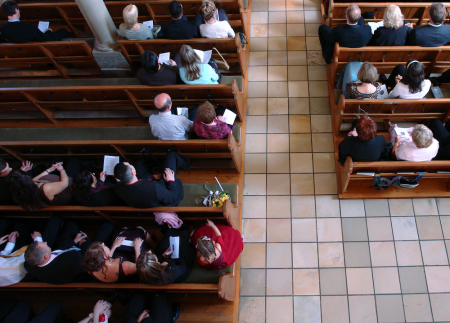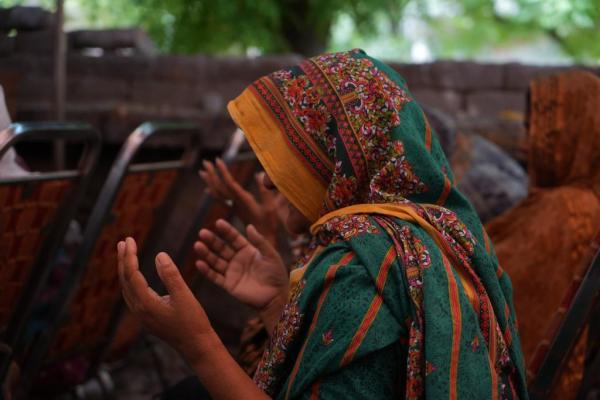Most Christians believe churches should provide counseling and care, but most pastors disagree: study

While more than half of Christians and nearly 50% of the general population believe churches should be offering care and counseling to their communities, most pastors disagree, according to recent research from the Barna Group.
In an analysis of data collected in 2015, 2020 and 2022, Barna researchers measured how pastors, Christians, non-Christians and the general U.S. adult population see the church's role in society today.
While only 31% of pastors, 38% of non-Christians and 48% of U.S. adults, in general, believe churches should offer counseling and care in their communities, more than half of Christians (52%) think churches should be offering these services to their communities, the polling suggests.
The research on the pastors was collected from 585 online interviews with Protestant senior pastors in the U.S. from September 6–16, 2022.
A majority of pastors believe their main roles in the community are to tell others about Jesus (84%), help Christians grow (75%), practically assist those in need (64%), provide hands-on help to people in need (57%), teach or serve children (55%) and care for the elderly and widows (52%).
On several data points, including whether churches should offer counseling and care to their communities, there were clear disconnects between how pastors, Christians, non-Christians and the general U.S. adult population see their role in society.
Compared to pastors, Christians place a higher priority on churches offering counseling and care over caring for the elderly and widows (38%), teaching or serving children (46%) and practically assisting those in need (46%).
"Clearly, this goes beyond what pastors want for their congregations, what congregants want from their pastors, and what neighbors want out of their local churches. 'The Church' is a broad concept for many, and while it would be impossible to cater to every single expectation this entails, leaders should pay attention to the notable distinctions between what people want from churches and what pastors believe they should be offering," researchers noted in an excerpt from Barna's Resilient Pastor series.
The series explores how pastors, Christians and non-Christians say a church should show up in its community.
"There are ways for pastors and communities to get on the same page (or at least in the same chapter) about the role of the church in their communities — but it's going to take some humility, introspection and, most importantly, open communication to get there."
The finding comes as previous studies reported by The Christian Post show how ill-equipped many churches are in ministering to members of their community struggling with their mental health.
At the height of the pandemic, Barna and research partner Pepperdine University's Boone Center for the Family found that 58% of U.S. adults and 54% of practicing Christians reported having at least one relational, emotional or mental health issue that impacts their most important relationships. This finding was highlighted in the report "Restoring Relationships: How Churches Can Help People Heal & Develop Healthy Connections."
"I have always believed that the Church is a great resource for people to go to receive help with things like anxiety and depression. Though, over the last several years, there's been some separation [in how we care for people] — professionals deal with mental healthcare concerns and church people deal with spiritual concerns — and I think we've missed volumes of opportunity here," Boone Center Executive Director Sharon Hargrave told Barna President David Kinnaman in an interview.
"I believe the Church is very well-suited to help with relationship and mental healthcare concerns, and our programming at the Boone Center for the Family is designed specifically to intertwine theology and psychology in such a way that church and mental healthcare workers can work together."
Barna researchers found that as they weathered the COVID-19 pandemic, only three in 10 pastors (30%) reported feeling "very well-equipped" to help their congregants through their mental and emotional troubles.
In 2021, for example, a PC(USA) minister survey on mental health issues found that 44% of the 4,507 pastors surveyed reported that they "have not been trained to recognize mental health concerns or how to minister to those individuals and families who face them."
Many pastors themselves struggle with their mental health and sometimes become so isolated they have resorted to suicide.
Reacting in 2018 to the high-profile suicides of CNN host Anthony Bourdain and iconic fashion designer Kate Spade, suicide survivor Apostle Bryan Meadows, who leads Embassy Church International in Atlanta, warned his followers that they should take steps to care for their own mental health and not treat their pastors like therapists.
"Creatives need PASTORS and THERAPISTS!!! Your Pastor is NOT your therapist, and your therapist is NOT your Pastor. While everyone should utilize these resources in their life, for the CREATIVE it's absolutely necessary," Meadows wrote. "When your life is spent processing intense stimuli, emotions and experiences, you have to address emotional and psychological constipation. When you are constantly living to make others happy and inspired, you need to understand how that takes a toll of your emotional and mental health."
Data cited by Health.com shows mental illness has risen in the United States "due to the rise in social media, the COVID-19 pandemic, and societal trends that have resulted in smaller family units and less community involvement." About 20% of the population is reportedly experiencing some form of mental illness, equivalent to more than 50 million people.
Mental Health in America notes that about 54.7% of adults with a mental illness do not receive treatment.
In March, The Rev. A.R. Bernard, leader of New York City's 40,000-member Christian Cultural Center, who has some 45 years of experience in ministry, shared some best practices for optimum mental health during an interfaith meeting on the subject. He suggested the reason some people may still be looking to the church or faith leaders for counseling and care could be the stigma surrounding mental healthcare in society.
"When 9/11 hit, I got a call for a gathering of clergy. Because what they found was that the first responders who were being traumatized by what they were dealing with, on a daily basis, it was so intense. They didn't want to meet with … a healthcare or mental health professional," Bernard recalled.
"They wanted to meet with their imam, their pastor, their priest, a rabbi. That was 22 years ago almost, a lot has changed. One of the reasons why they wanted to meet with their clergyperson is because of the stigma associated with mental health and seeking mental health care," he explained. "Thank you for the millennials, for removing the stigma. So now you can say, 'I'm going to see my therapist,' or like, 'my therapist said to me the other day,' and not have people look at you funny. We've come a long way."
Contact: leonardo.blair@christianpost.com Follow Leonardo Blair on Twitter: @leoblair Follow Leonardo Blair on Facebook: LeoBlairChristianPost





















